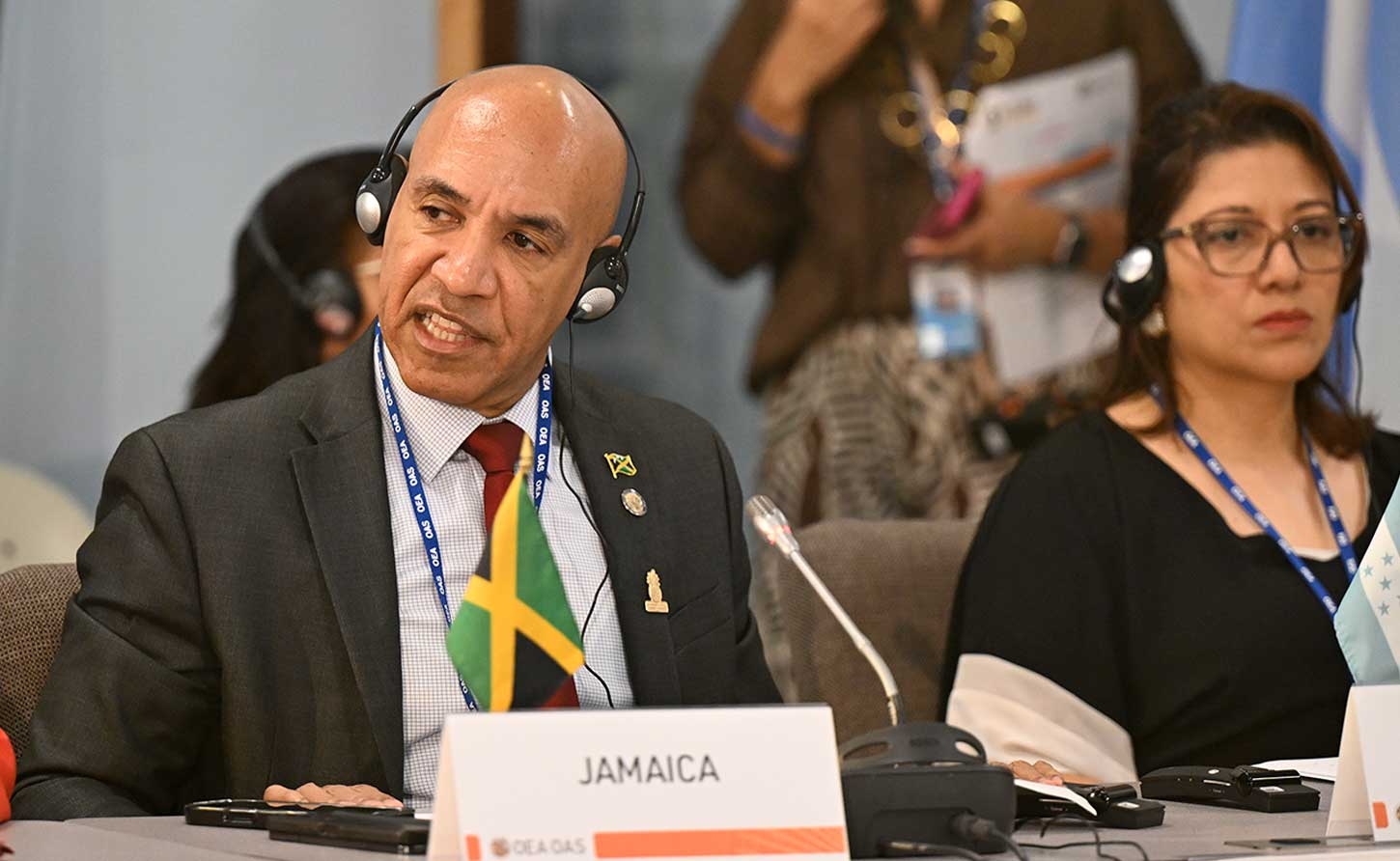JAMAICA Reports Economic Progress at OAS General Assembly in Antigua

ST. JOHN’S Antigua, July 2, 2025 - Jamaica's newly accredited Ambassador to the United States presented the country's national statement at the 55th Organization of American States General Assembly in Antigua last week, highlighting significant economic reforms and the nation's continued commitment to regional stability.
Speaking on behalf of Foreign Minister Kamina Johnson Smith, Ambassador Major General (Ret'd) Anthony Anderson delivered Jamaica's national statement to the historic gathering, marking the first time in over two decades that the OAS General Assembly has been held in the Caribbean.
His message was clear: Jamaica has reduced public debt from over 140% of GDP in 2013 to 73.4% in recent years, a feat that has caught international attention.
From Basket Case to Success Story
"Jamaica's economic recovery marks a significant shift after decades of stagnation," Anderson told delegates gathered in St. John's, Antigua & Barbuda. The numbers tell a compelling story of fiscal discipline paying off. The debt-to-GDP ratio now sits at 68.7 percent, down from a crushing 140 percent just over a decade ago. Unemployment has plummeted to a record-low 3.5 percent.
This transformation hasn't happened by accident. Jamaica adopted fiscal rules that highlighted the debt problem, encouraged the formulation of a medium-term plan, and limited slippage from the plan's targets, according to recent analysis by the Brookings Institution.
The island's leaders leveraged political consensus-building that economists say is rare in today's polarized world.
Anderson emphasized that for Jamaica, "building resilience is not just a policy aspiration but our lived reality." The ambassador highlighted how the country has expanded its productive base across tourism, agriculture, logistics, creative industries and digital services – diversifying an economy once heavily dependent on bauxite and sugar.
Storm Clouds on the Horizon
Yet even as Jamaica celebrates its economic achievements, Anderson was candid about the vulnerabilities that remain. "Every year from June to November, Jamaicans live with the fear that hard-won socio-economic gains could be eliminated with the passage of one severe storm," he warned, calling for increased climate financing and regional cooperation on climate adaptation.
This concern isn't theoretical. The Jamaican economy went into recession in 2024 when Hurricane Beryl and Storm Rafael prompted a decline in private consumption and deterioration in net exports, demonstrating how quickly natural disasters can derail progress.
The ambassador's emphasis on inclusive development struck a chord with delegates. "Growth that leaves behind large segments of our societies is neither just nor sustainable," Anderson declared, linking social inclusion directly to economic sustainability – a message that resonated throughout the assembly's theme of "Building Resilient and Inclusive Economies in the Americas."
Haiti: A Regional Responsibility
Anderson's most sobering remarks focused on neighboring Haiti, where more than one million people are now internally displaced, with nearly 60,000 newly displaced in recent weeks. Jamaica has already deployed a 25-member contingent from its armed forces as part of the Caribbean Community Joint Task Force supporting the Kenya-led Multinational Security Support Mission.
The timing is particularly significant as Jamaica prepares to assume chairmanship of CARICOM on July 1. The OAS adopted a resolution urging swift regional coordination and an action plan within 45 days to support security, humanitarian relief and democratic transition in Haiti.
"We owe it to present and future generations to act decisively," Anderson said, calling for greater support to address what he termed Haiti's "multidimensional crisis," including the trafficking of firearms in exchange for food and drugs by transnational criminal organizations.
Historic Moment for the Caribbean
The three-day assembly represented a watershed moment for Caribbean leadership in hemispheric affairs. It was the first General Assembly under Secretary-General Albert Ramdin, the first CARICOM national to hold the OAS's top position since the organization's inception over 70 years ago.
Ambassador Anderson, who was accredited to the OAS just eight days before the assembly on June 18, used the platform to reaffirm Jamaica's commitment to working constructively with member states. He argued that "now more than ever, the Organization of American States is needed to secure peace and justice, promote solidarity, strengthen collaboration, and defend the sovereignty, territorial integrity and independence of its Member States."
As Jamaica prepares to take the helm of CARICOM leadership, its economic success story offers both inspiration and a template for regional development. The question now is whether other Caribbean nations can replicate Jamaica's fiscal discipline and political consensus-building that made its transformation possible.
The assembly's choice of theme – building resilient and inclusive economies – seemed tailor-made for Jamaica's moment in the spotlight, showcasing how a small island nation can punch above its weight through smart policy choices and sustained political will.
-30-
